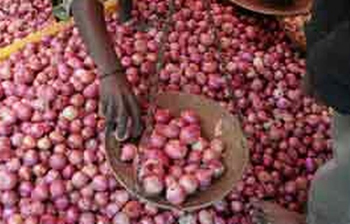The World Bank says that a lack of credit and drop in private consumption have led to a gloomy growth outlook for India with a steep cut in growth rate for the current fiscal year and only a modest gain projected for the next year.
India's growth rate is forecast to be only 5 per cent for the current fiscal year, weighed down by a growth of only 4.5 per cent in the July-September quarter, according to the 2020 Global Economic Prospects report released on Wednesday.
"In India, [economic] activity was constrained by insufficient credit availability, as well as by subdued private consumption," the Bank said.
The growth rate is forecast by the Bank to pick up to 5.8 per cent in the next fiscal year and to 6.1 per cent in 2021-22.
India's growth rate was 6.8 per cent in 2018-19.
The 5 per cent growth rate projection for the current financial year is a sharp cut of 2.5 per cent from the 7.5 per cent forecast made by the Bank in January last year, toppling it from the rank of the world's fastest growing economy.
India's performance follows a global trend of lowered growth weighed down by developed economies.
The report estimated world economic growth rate to be only 2.4 per cent last year and forecast it to edge up 0.1 per cent to 2.5 per cent in the current year.
Even with the lower growth rate of 5 per cent in the current fiscal year and 5.8 per cent forecast for the next, India holds the second rank among large economies, behind only China with an estimated growth rate of 6.1 per cent for 2019 and 5.9 per cent this year.
The report blamed "weak confidence, liquidity issues in the financial sector" and "weakness in credit from non-bank financial companies" for India's slowdown.
The Bank predicated India's recovery to 5.8 per cent in the coming financial year for India but "on the monetary policy stance remaining accommodative" and the assumption that "the stimulative fiscal and structural measures already taken will begin to pay off."
It also warned that sharper-than-expected slowdown in major external markets such as United States and Europe, would affect South Asia through trade, financial, and confidence channels, especially for countries with strong trade links to these economies."
The Bank said that the growth of advanced economies was 1.6 per cent last year and "is anticipated to slip to 1.4 per cent in 2020 in part due to continued softness in manufacturing."
In contrast the growth of emerging market and developing countries is expected to accelerate from 3.5 per cent last year to 4.1 per cent this year, the report said.
In South Asia, Bangladesh is estimated to have the highest growth rate of 7.2 per cent in the current fiscal year, although down from 8.1 per cent last fiscal year.
But its higher regional growth rates are coming off a lower base with a per capital gross domestic product of $1,698 compared to $2,010 for India.
Bangladesh is expected to grow by 7.3 per cent in the next financial year.
Pakistan's growth rate is estimated at only 2.4 per cent in the current fiscal year and is projected to rise to 3 per cent in the next, according to the Bank.
The Bank blamed monetary tightening in Pakistan for a sharp deceleration in fixed investment and a considerable softening in private consumption for the fall in growth rate from 3.3 per cent in the 2018-19 fiscal year.
Sri Lanka's growth rate was estimated to be 2.7 per cent last year and forecast to grow to 3.3 per cent this year.
Nepal grew by an estimated 6.4 per cent in the current fiscal year and will rise to 6.5 per cent in the next.
 Bangalore, Jun 20: The onion price in Bangalore has gone up by nearly Rs. 10 a kilo in the wholesale market over the last fortnight and is likely to increase further, according to onion traders at the Agriculture Produce Marketing Committee (APMC). The retail price of good quality onion, which was in the range of Rs. 10 to Rs. 15 a kilo, is now above Rs. 25.
Bangalore, Jun 20: The onion price in Bangalore has gone up by nearly Rs. 10 a kilo in the wholesale market over the last fortnight and is likely to increase further, according to onion traders at the Agriculture Produce Marketing Committee (APMC). The retail price of good quality onion, which was in the range of Rs. 10 to Rs. 15 a kilo, is now above Rs. 25.




Comments
Add new comment